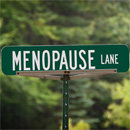

 Almost all women going through menopause experience symptoms, and likely one of the most un -nerving symptom is some form of weight gain. These added pounds can also pack on a variety of health concerns that put a woman at risk of developing a variety of other conditions.
Almost all women going through menopause experience symptoms, and likely one of the most un -nerving symptom is some form of weight gain. These added pounds can also pack on a variety of health concerns that put a woman at risk of developing a variety of other conditions.
Weight gain is a common aspect of getting older, and most women are said to gain between 12 and 15 extra pounds during this time. Regular weight gain occurs as a result of fat deposits or excess fluid which causes the dreaded “water weight”. However, weight gain associated with menopause tends to increase the amount of fat that women notice around the mid-section. Why women are at increased risk when it comes to menopausal weight gain.
RELATED ARTICLE: Lowering Your Breast Cancer Risk
Menopausal weight gain is cause for more than just the concerns that you see looking back at you in the mirror. There is a variety of diseases and conditions that can result from a body that is carrying too much extra weight.
This additional weight can lead to:
*Heart disease, stroke
* Osteoarthritis
* Breast cancer
*High cholesterol
* Kidney disease
*Higher blood pressure and cholesterol
Research has shown that women can potentially gain between 12 and 15 pounds after menopause begins, and when this happens it can increase breast cancer risk considerably.
So what exactly causes menopausal weight gain?
While age alone can certainly lead to the “spare tire” women that are approaching menopause have more of a cause for concern. The hormonal fluctuation that occurs prior to menopause and a woman’s body preparing the reduction in hormones is what makes her likely to experience weight gain.
The primary factor for women who gain weight during menopause is the hormone estrogen. In the case of estrogen, as a woman´s ovaries produce less of it, her body will try to find this hormone in other areas. Fat cells are known to produce estrogen, so the woman’s body works harder to convert calories into fat to increase dwindling estrogen. Unfortunately, fat cells don’t burn calories the way muscle cells do, which causes weight gain.
A couple of other main factors are the simple act of overeating and hypothyroidism.
Overeating
Such a severe drop in hormones can increase a woman´s appetite and cause weight gain. An increase in appetite coupled with the slower metabolism of the aging process can cause weight gain in women which is further exemplified by menopause.
Hypothyroidism
Women with an underactive thyroid often experience weight gain because their metabolic rate slows. Thyroid hormones regulate calorie consumption in the body. With an underactive thyroid, fewer calories are burned and converted into energy. Instead they are stored in the body and can lead to weight gain.
Treatment options
Many doctors recommend that lifestyle changes are the best place to begin in the treatment of menopausal weight gain. Regular exercise, a diet rich in whole foods, and general portion control are the best ways to combat menopausal weight gain. However, there has been some success noted with alternative therapies for hormonal imbalance, though more research will need to be done.
Related Reading:
Natural health: Best herbs for women
Healthy eating with hypothyroidism
Copyright © www.orthopaedics.win Bone Health All Rights Reserved